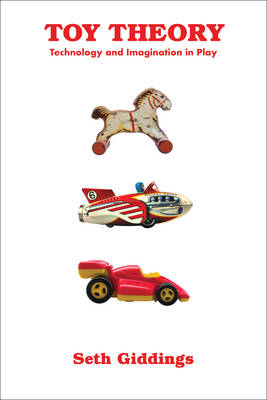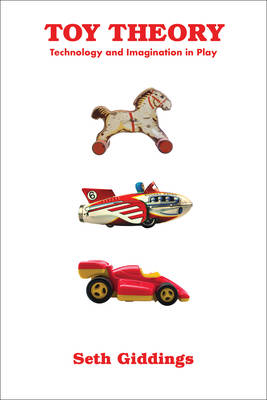
- Afhalen na 1 uur in een winkel met voorraad
- Gratis thuislevering in België vanaf € 30
- Ruim aanbod met 7 miljoen producten
- Afhalen na 1 uur in een winkel met voorraad
- Gratis thuislevering in België vanaf € 30
- Ruim aanbod met 7 miljoen producten
Zoeken
Omschrijving
A novel interpretation of the history and theory of technology from the perspective of toys, play, and play objects. Toy Theory addresses the relationships between toys and technology in two distinct but overlapping ways: first, as underexamined cultural artifacts and behaviors with significant technical attributes and, second, as playful and toylike dimensions of technology at large. Seth Giddings sets out a "toy theory" of technology that emphasizes the speculative, experimental, and noninstrumental in technological paradigms and argues that children's playthings, rather than being the most ephemeral and inconsequential of technical devices, instead offer analytical and anthropological resources for understanding the materiality and imaginaries of technology over time. After defining toy theory in general and conceptual terms, Giddings examines different types of toys to explore shifting relationships between the microcosmic symbolic or mimetic content, material and technical constitution, and modes of play of toys and toy-related artifacts, on the one hand, and prevailing, macrocosmic, technological paradigms and imaginaries, on the other. Taking a broad historical and genealogical view, Giddings traces contemporary postdigital toy and play culture to precedents from the neolithic through to the Enlightenment to consumer culture from the early nineteenth century to the present day.
Specificaties
Betrokkenen
- Auteur(s):
- Uitgeverij:
Inhoud
- Aantal bladzijden:
- 286
- Taal:
- Engels
Eigenschappen
- Productcode (EAN):
- 9780262548212
- Verschijningsdatum:
- 5/11/2024
- Uitvoering:
- Paperback
- Formaat:
- Trade paperback (VS)
- Afmetingen:
- 152 mm x 229 mm
- Gewicht:
- 45 g

Alleen bij Standaard Boekhandel
+ 149 punten op je klantenkaart van Standaard Boekhandel
Beoordelingen
We publiceren alleen reviews die voldoen aan de voorwaarden voor reviews. Bekijk onze voorwaarden voor reviews.











